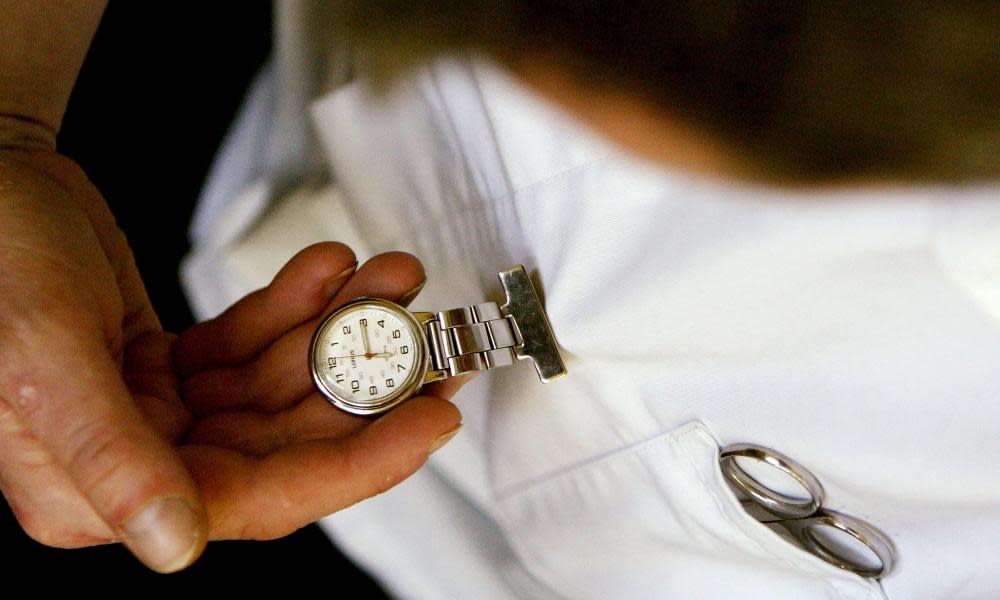The suicidal patient who taught me the value of time

The ambulance pulled in but unusually the crew came into the hospital alone. They informed us that a high risk mental health patient was on their way to the department, and was being accompanied by the police. This set alarm bells in my head.
I qualified as a staff nurse a few years previously. We received no mental health training, but we do look after people in real crisis. In my experience patients with severe mental health problems do not usually want to be in A&E.
I have been spat at, verbally abused and threatened. Though this was normally due to drugs, alcohol and fear, it wears you down. The environment is busy, loud and fast and even with my lack of mental health training, I know this is not conducive to calm.
When I started working in A&E I was in my early 20s and had a very naïve view of the world. A&E taught me that some people have very hard lives, they’ve experienced things no one ever should and it’s taught me everyone has a story, even if they hide it.
The police arrived and when they stepped aside I saw this child-like figure; she had closed body language, her hair was strewn across her face, and mascara ran down her cheeks. She was terrified. She sat down and stared at the floor while the ambulance crew and police handed over.
Knowing what to say is hard. You want to take the pain away but mental torture isn’t cured by painkillers.
She was in her late teens. She was having hallucinations and suicidal thoughts. Her parents had phoned the police because they were scared of her behaviour. She was screaming and shouting. She had arrived without any family. I remember a wave of sadness washing over me as I listened. How had this young, beautiful girl got to this point? How had she got to point of thinking she would be better off dead?
The patient was still visibly agitated but was no longer shouting. The crew and police left, telling us to phone if we needed them. I sat next to her, but she remained closed.
Knowing what to say in this situation is hard. You want to take the pain away but mental torture isn’t cured by painkillers. She didn’t reply to anything I said until I realised that if I was in her situation, I would want to know I was safe. I put my arm on her shoulder and told her she was safe. She fell into my chest sobbing. She stayed there for what felt like hours, holding me so tight as her make-up ran down my uniform.
I was grateful the department wasn’t overflowing that day. My manager looked over to me and mouthed: “Stay with her.” The patient told me how her parents didn’t care, how she hated herself and just wanted to be normal. I just listened, not saying anything. I thought that her parents probably did care, but just didn’t know how to help. Many people’s fear is expressed as frustration.
As her sobbing stopped the exhaustion set in. She was assessed by our psychiatric team and only then did I see how much she needed help. She thought doctors were trying to kill her. Sorrow filled me, knowing her mind was causing her to have these terrible thoughts.
The patient was sectioned. I went home and cried because I couldn’t make her better. She was only a few years younger than me and I could understand what was happening to her. This was not the first or the last time I would cry about a patient.
Weeks later, I arrived at work to find a letter addressed to me. The letter thanked me and told me that if all nurses were like me, everyone would be sane. I welled up reading it. It was my first note from a patient and I treasure it to this day.
I have never forgotten this young woman or how she changed my perception of mental health patients. She taught me so much. Most importantly that spending enough time with someone at the right moment can achieve so much. This situation taught me to take my time whenever I can, and to fight for safe staffing. This story could have been so different if the department was busy.
Years later, when I saw the patient in the local media advocating for mental health patients, I was amazed. For the first time, I felt hope and joy when seeing her; hope for her and for the NHS, joy that she had recovered so well, and that maybe I touched her life in a similar way to how she touched mine.
If you would like to contribute to our Blood, sweat and tears series about memorable moments in a healthcare career, read our guidelines and get in touch by emailing sarah.johnson@theguardian.com.
Join the Healthcare Professionals Network to read more pieces like this. And follow us on Twitter (@GdnHealthcare) to keep up with the latest healthcare news and views.

 Yahoo News
Yahoo News 
